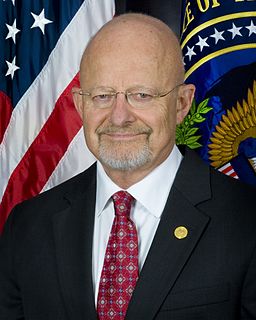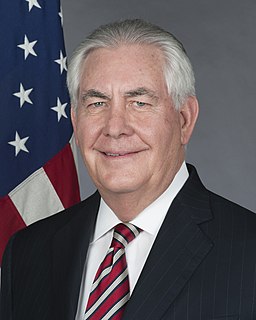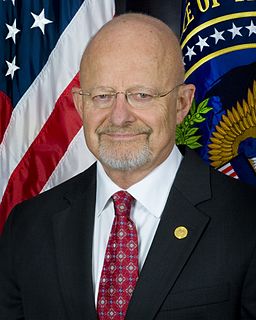A Quote by James Clapper
I had served in the Republic of Korea in the early '80s while I was on active duty as a director of intelligence for U.S. forces Korea, and kind of followed developments on the peninsula ever since.
Related Quotes
I think the regime in North Korea is more fragile than people think. The country's economic system remains desperate, and one thing that could happen for example would be under a new government in South Korea, to get the South Korean government to live up to its own constitution, which says any Korean who makes it to South Korea, is a Korean citizen. A citizen of the Republic of Korea. And you could imagine the impact that would have inside North Korea if people thought, "If I could get out and make it to South Korea, I could have a different life."
THe Chinese like the satellite state [North Korea] between China and our forces, they fear that in a reunified Korea, American troops would be at the Yalu River and they've seen that movie before. They didn't like it the first time they saw it and they don't like it any better today. So they are quite happy with the divided Korean peninsula and that's a fundamental difference between the way they see things and the way we see things.
While I was not consulted prior to the President's decision to intervene in support of the Republic of Korea, that decision from a military standpoint, proved a sound one, as we hurled back the invader and decimated his forces. Our victory was complete, and our objectives within reach, when Red China intervened with numerically superior ground forces.
It's important to understand the policy of the U.S. towards North Korea is to deny North Korea possession of a nuclear weapon and the ability to deliver that weapon. Our strategy has been to undertake this peaceful pressure campaign we call it enabled by the four no's.The four no's being that we do not seek regime change, a regime collapse, an accelerated reunification of the peninsula, and we do not seek a reason to send our forces north of the demilitarized zone.
When I visited North Korea in November 2014, is that Kim Jong-un is not merely the head of state of the DPRK - the Democratic People's Republic of Korea, North Korea - he's also their deity. So, when you insult him as the head of state, you're also insulting the deity, which of course the regime plays to a fare-thee-well to the domestic audience there.
During the periods when South Korea played a more active role, the inter-Korean relationship was more peaceful, and there was less tension between the United States and North Korea. The last U.S. administration pursued a policy of strategic patience and did not make any effort to improve its relationship with North Korea. Also, the previous Korean government did not make any such efforts. The result is the reality you see today - North Korea continuing to advance its nuclear and missile program.
To say that the United States has pursued diplomacy with North Korea is a little bit misleading. It did under the Clinton administration, though neither side completely lived up to their obligations. Clinton didn't do what was promised, nor did North Korea, but they were making progress. So when Bush came into the presidency, North Korea had enough uranium or plutonium for maybe one or two bombs, but then very limited missile capacity. During the Bush years it's exploded. The reason is, he immediately canceled the diplomacy and he's pretty much blocked it ever since.
North Korea is no threat at all. I have already spoken about it during countless televised interviews. I visited North Korea and mingled with its people. There, nobody wants war. The North Korean people paid a terrible price for their independence. Its civilians were murdered mercilessly in tunnels by Western forces; its women were brutally raped, entire villages and towns leveled to the ground, or burned to ashes. All this is never discussed in the West, but is remembered in North Korea.

































